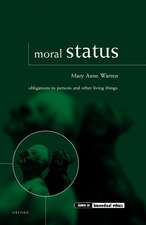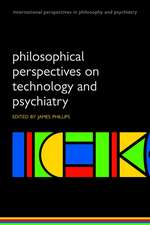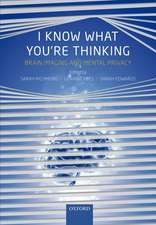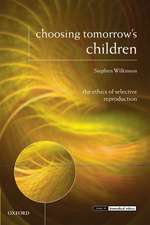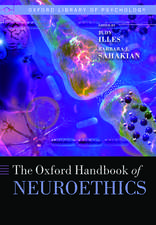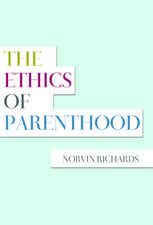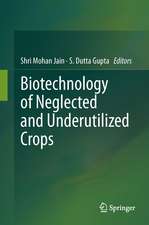Bioethics: An introduction for the biosciences
Autor Ben Mephamen Limba Engleză Paperback – 13 mar 2008
Preț: 339.13 lei
Preț vechi: 389.89 lei
-13% Nou
Puncte Express: 509
Preț estimativ în valută:
64.90€ • 67.51$ • 53.58£
64.90€ • 67.51$ • 53.58£
Carte tipărită la comandă
Livrare economică 04-10 aprilie
Preluare comenzi: 021 569.72.76
Specificații
ISBN-13: 9780199214303
ISBN-10: 0199214301
Pagini: 438
Ilustrații: 40 figures
Dimensiuni: 171 x 246 x 24 mm
Greutate: 0.75 kg
Ediția:Revised
Editura: OUP OXFORD
Colecția OUP Oxford
Locul publicării:Oxford, United Kingdom
ISBN-10: 0199214301
Pagini: 438
Ilustrații: 40 figures
Dimensiuni: 171 x 246 x 24 mm
Greutate: 0.75 kg
Ediția:Revised
Editura: OUP OXFORD
Colecția OUP Oxford
Locul publicării:Oxford, United Kingdom
Recenzii
... the work is very powerful ... and stands as a prominent landmark for the work of all educators in biology.
It is an excellent introduction to the subject for biosciences students: clear, comprehensive, relevant, fair-minded and even-handed, obviously written by a skilled teacher with a mature understanding of current developments and thinking in both science and ethics. The text is studded with thought-provoking facts and telling quotations and the author's ethical matrix meshes well with the detailed contents of the chapters on specific topics.
Ben Mepham is to be congratulated on producing a very readable text covering such a variety of topics in bioethics. I would recommend this text to tutors and final year undergraduate bioscience students as both an introduction to the concepts of bioethics and in providing further depth and points for discursive thought.
I am impressed with Mepham's knowledge of bioethics and his ability to articulately and intelligently communicate that knowledge to introductory students. His logical, objective approach in discussing a subject that is widely misunderstood, and often feared, is timely and important. I can think of no other textbook that I would rather have in the classroom when asking students to leave their opinions, biases, and intellectual baggage at the door and consider bioethics in a meaningful, thoughtful, and substantive manner.
It is an excellent introduction to the subject for biosciences students: clear, comprehensive, relevant, fair-minded and even-handed, obviously written by a skilled teacher with a mature understanding of current developments and thinking in both science and ethics. The text is studded with thought-provoking facts and telling quotations and the author's ethical matrix meshes well with the detailed contents of the chapters on specific topics.
Ben Mepham is to be congratulated on producing a very readable text covering such a variety of topics in bioethics. I would recommend this text to tutors and final year undergraduate bioscience students as both an introduction to the concepts of bioethics and in providing further depth and points for discursive thought.
I am impressed with Mepham's knowledge of bioethics and his ability to articulately and intelligently communicate that knowledge to introductory students. His logical, objective approach in discussing a subject that is widely misunderstood, and often feared, is timely and important. I can think of no other textbook that I would rather have in the classroom when asking students to leave their opinions, biases, and intellectual baggage at the door and consider bioethics in a meaningful, thoughtful, and substantive manner.
Notă biografică
Special Professor in Applied Bioethics, School of Biosciences, University of Nottingham and Visiting Professor in Bioethics, Department of Policy Studies, University of Lincoln, UK


